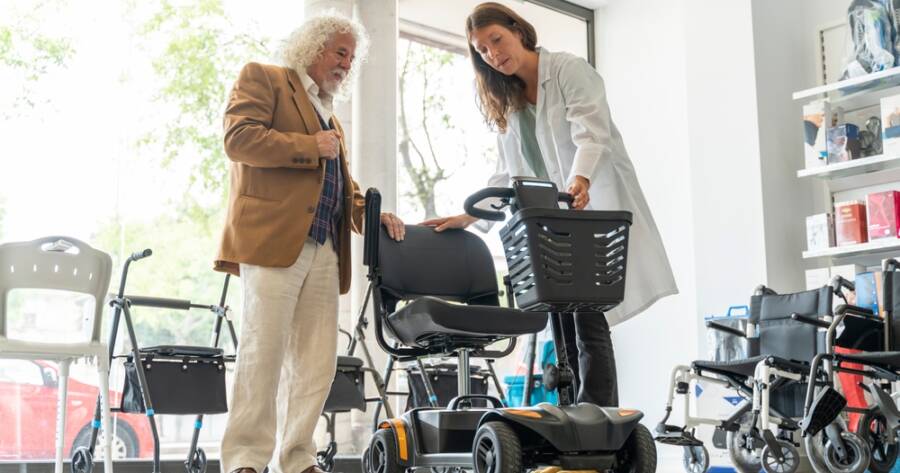Mobility scooters can greatly enhance independence and quality of life for individuals with limited mobility, but their cost can be a major concern. Understanding whether Medicare covers mobility scooters is essential for those seeking financial assistance. Eligibility depends on medical necessity, documentation, and supplier approval, ensuring coverage aligns with specific health and mobility needs.
Understanding Medicare Coverage for Mobility Scooters
Mobility scooters are vital for individuals with limited mobility, offering a chance to regain independence and participate in daily activities. For individuals seeking Medicare coverage, it is essential to navigate various eligibility requirements and documentation processes. Medicare Part B, which covers durable medical equipment (DME) like mobility scooters, requires meeting specific conditions, such as a proven medical necessity and a prescription from a Medicare-enrolled physician, as a critical step towards obtaining coverage.
The Eligibility Process
The pathway to securing a Medicare-covered mobility scooter often begins with a comprehensive face-to-face consultation with a doctor. This appointment is crucial for diagnosing a medical condition that significantly impairs mobility, even when using canes or walkers. As part of the process, the doctor must complete a Certificate of Medical Necessity (CMN) form. Additionally, relevant medical records that justify the need for a scooter over other mobility aids must be submitted to support the documentation.
Auditing Your Medicare Plan
Medicare plans can vary in coverage details, so understanding the specific benefits your plan offers is crucial. While Medicare Part B generally covers 80% of the eligible scooter cost, the remaining 20% often falls to the patient, unless supplemental insurance mitigates this portion. It’s also vital to ensure that all involved parties, from the doctor to the supplier, are enrolled in Medicare and accept assignment. This enrollment guarantees that costs remain manageable and within the plan’s covered limits and helps avoid unexpected charges.
Choosing the Right Mobility Scooter
There are multiple models and types of Medicare-approved mobility scooters designed to meet diverse needs. Compact scooters like the Go-Go Elite Traveller® are perfect for indoor use due to their practicality and ease of disassembly, while heavy-duty options like the Maxima 4-Wheel Scooter are designed for those in the bariatric market. The Victory® 9.2 Scooter offers a mix of comfort and features for users who require a balance between style and performance to suit varied preferences and needs.
Navigating Through Documentation
Successfully acquiring a Medicare-covered mobility scooter requires precise handling of documents and working with authorized entities to ensure eligibility. Coordination with Medicare-approved suppliers is crucial, as they help streamline the documentation and reimbursement processes. Consulting healthcare providers and suppliers ensures that the requirements are met efficiently, reducing the risk of denied claims.
Importance of Compliance and Communication
The Medicare approval process for mobility scooters demands attentiveness to detail. Prior authorization may be required depending on the scooter type, with DME suppliers typically managing this step. Ensuring that all information is accurate and complete will prevent coverage denial due to insufficient documentation. Continuous communication with healthcare providers and suppliers ensures patients are informed about their coverage and any additional costs that might arise throughout the process.
Why You Should Learn More About Medicare Mobility Scooters Today
Investigating Medicare coverage for mobility scooters is vital for anyone experiencing limited mobility yet seeking independence. Understanding the nuanced eligibility requirements and documentation involved is important for a smooth acquisition process.
By carefully planning and collaborating with healthcare professionals and Medicare-approved suppliers, individuals can navigate complex procedures and acquire the most suitable mobility aids that significantly enhance the quality of life. Exploring these options thoroughly can save time, mitigate costs, and ensure that patients receive mobility scooters tailored to their unique health and lifestyle needs.
Sources
Learn about Medicare scooter procedure
Understand documentation requirements for mobility aids
